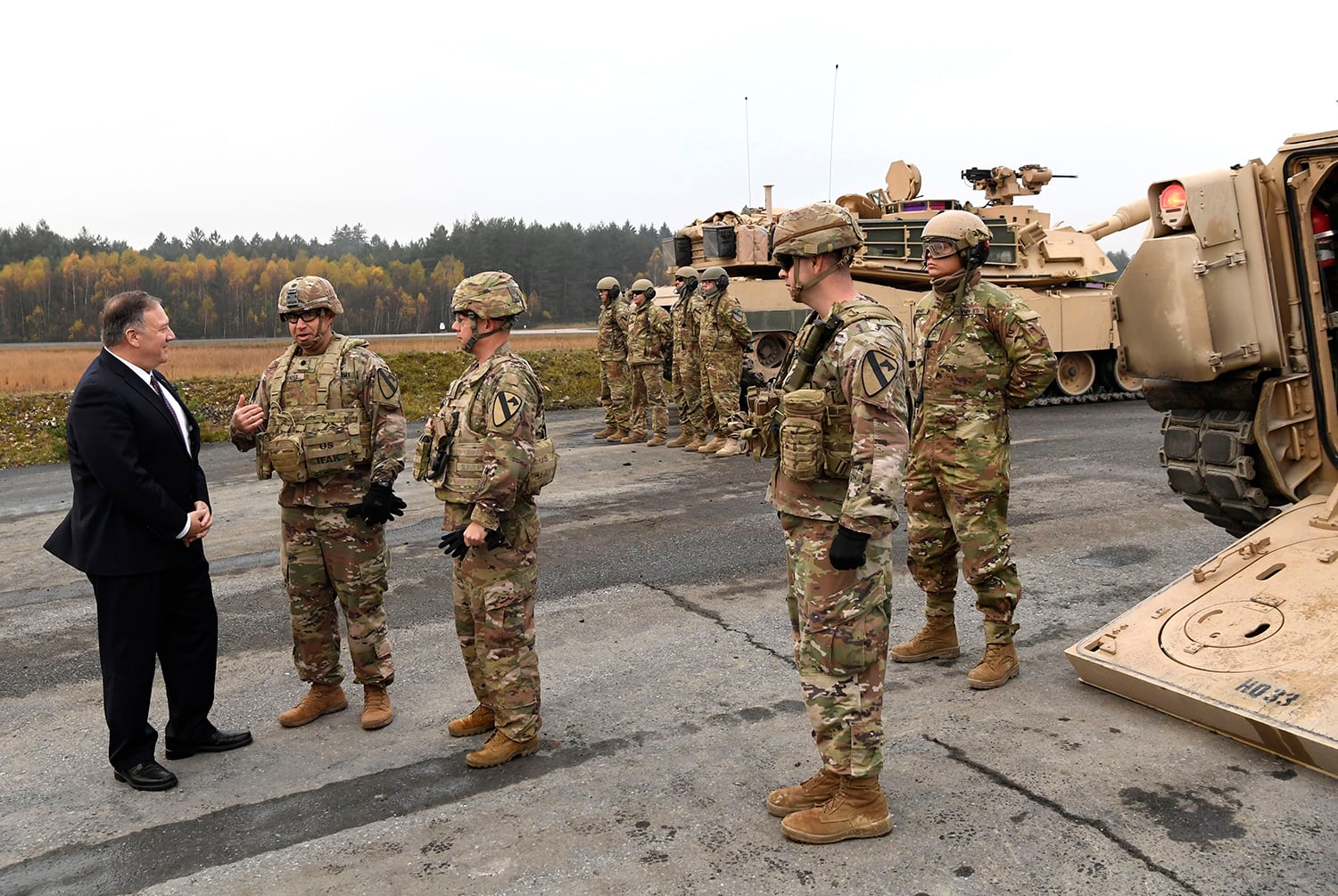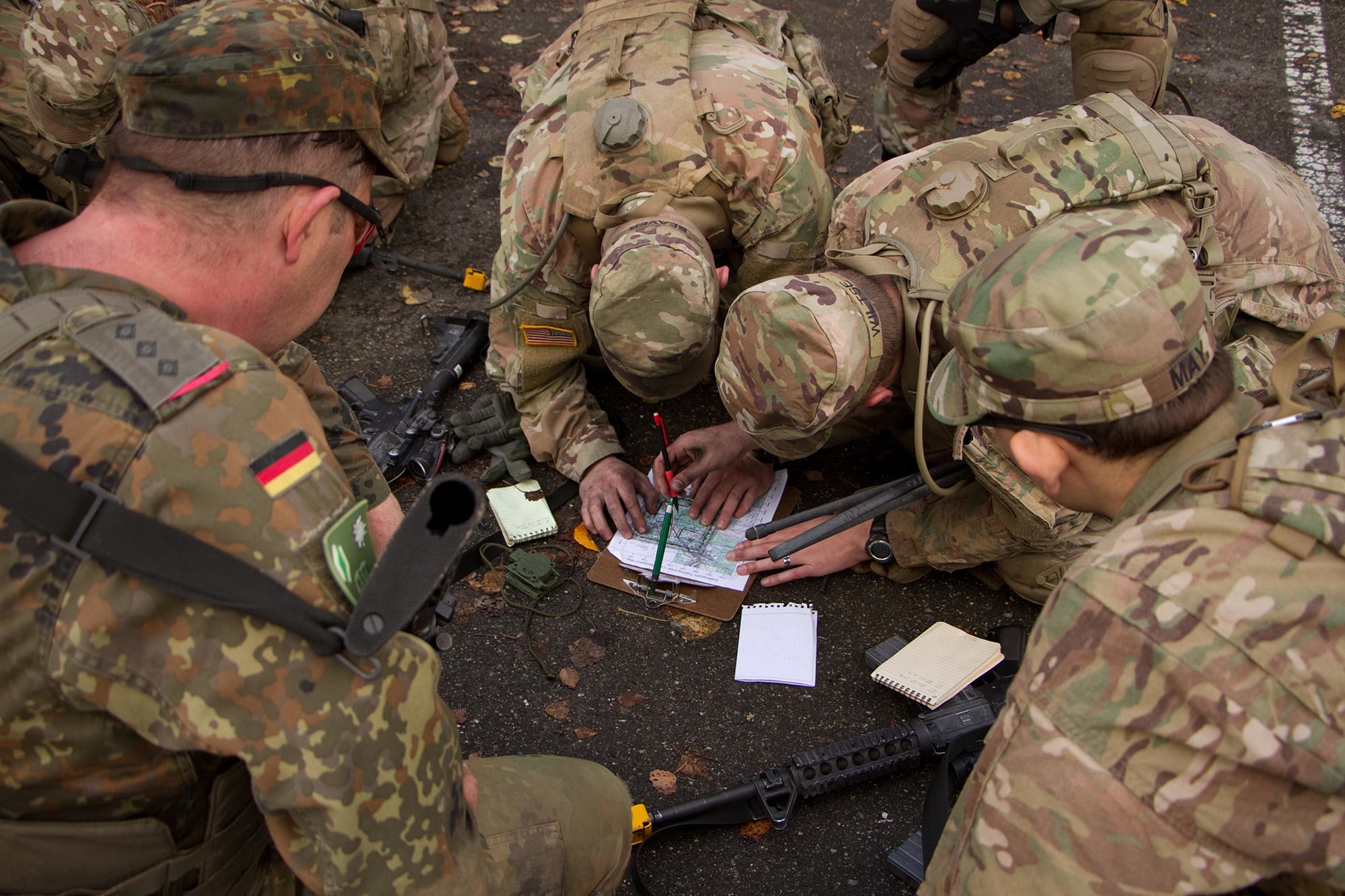A key House ally of President Donald Trump and other congressional lawmakers criticized reported White House plans to withdraw thousands of U.S. service members from Germany, calling it a short-sighted decision which will hurt military readiness.
“This is a dangerously misguided policy,” Rep. Liz Cheney, R-Wyo., and third-ranking Republican in the House, said in a statement over the weekend. “If the United States abandons allies, withdraws our forces and retreats within our borders, the cause of freedom — on which our nation was founded & our security depends — will be in peril.”
On Friday, the Wall Street Journal reported that the U.S. military will reduce its footprint in Germany by nearly one-third after Trump ordered a dramatic drawdown in force levels from the key NATO ally.
RELATED

Under a memorandum signed White House National Security Adviser Robert O’Brien (signed in recent days but not yet made public), U.S. troop presence in Germany would drop by 9,500 service members, from 34,500 today to about 25,000. The administration will also cap the number of total troops in the country at 25,000, creating a potential logistics problem as various military assets move through the country to other overseas deployments.
Officials from the White House have not publicly confirmed the plans. Officials from U.S. European Command and the Pentagon would not provide any comment on the matter.
Despite the lack of detail, the moves drew considerable concern from Congress, where lawmakers for recent years have pushed back against Trump’s assertions that the United States subsidizes too much of foreign allies’ national defense responsibilities.
“We’d all like to see our allies make larger investments to support our collective defense. But this is not the way to do that,” wrote Rep. Mike Gallagher, R-Wis., and a Marine Corps veteran who serve in Iraq.
Gallagher called U.S. forces in Germany “a critical lynchpin” of global military strategy. He also tied the news to this weekend’s 76th anniversary of D-Day, saying that World War II showed the importance of having forward-deployed U.S. defense forces.
Senate Armed Services Committee ranking member Jack Reed, D-R.I., went even further with his criticism of the proposed drawdowns, calling them “petty and preposterous.”
“It’s another favor to (Russian President Vladimir) Putin and another leadership failure by this administration that further strains relations with our allies,” he said.
RELATED

But the move was not universally opposed by Congress.
Arizona Republican Rep. Andy Biggs, a staunch supporter of Trump, applauded the move on social media this weekend, saying that “our allies must continue to do more to increase their defense spending commitments and rely less on U.S. military personnel for their national security.”
No timeline has been announced for the start of the drawdown.
Reaction to the U.S. plan from German leaders has been mixed thus far, with some calling it a new challenge for the security relationship between the two countries and other praising it as an overdue reduction on the American military presence there.
Leo covers Congress, Veterans Affairs and the White House for Military Times. He has covered Washington, D.C. since 2004, focusing on military personnel and veterans policies. His work has earned numerous honors, including a 2009 Polk award, a 2010 National Headliner Award, the IAVA Leadership in Journalism award and the VFW News Media award.





